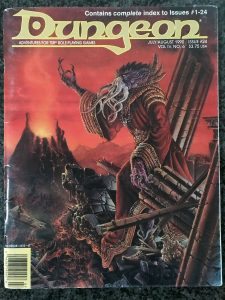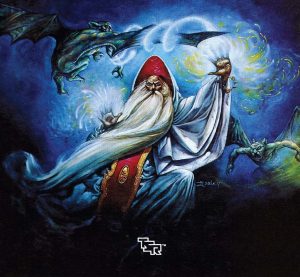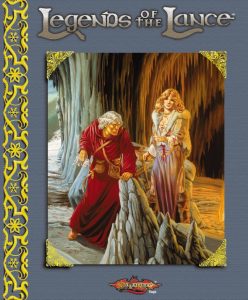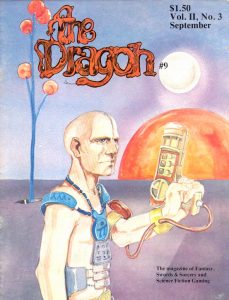
Basic Communications
In the incredibly intricate and magical world of Dungeons & Dragons, the role of language transcends mere verbal or written communication to become an elaborate tapestry that weaves together different dimensions, societies, and philosophies. It's not just a way to convey information or express feelings; it's a tool for shaping reality, negotiating complex social dynamics, deciphering cryptic mysteries, and cultivating relationships that can range from warm friendships to blood-curdling rivalries.
Let's consider the ubiquity of the Common tongue. While it's a language that facilitates basic communication across various races, it is hardly a one-size-fits-all solution. It's akin to a basic, surface-level protocol that enables entities from different backgrounds to engage in rudimentary dialogue. However, the Common tongue often lacks the nuances, idioms, and cultural subtleties that come with native or specialized languages. This limitation frequently presents itself when dealing with subjects that are deeply rooted in a particular culture or magical tradition, where the limitations of Common can potentially lead to misunderstandings or missed opportunities.
Take, for example, a scholarly elf with a high Intelligence score of 18. In game mechanics, this translates into an impressive linguistic arsenal that includes six native languages like Elvish, Sylvan, and perhaps even a few dialects specific to her ancestral lands. This goes beyond the Common tongue to also include a plethora of eight additional acquired languages, possibly consisting of Draconic, Celestial, Infernal, and other languages of arcane or divine origin.
But the advantages of this linguistic capability are far from merely academic. With her extensive knowledge, this elf can act as a mediator in a multi-racial alliance, decode an ancient spell locked behind layers of linguistic complexity, or even decipher sacred texts that could lead to untold treasures or arcane knowledge. She has a skill set that allows her to navigate through ancient ruins inscribed in a long-forgotten tongue, to negotiate with otherworldly entities in their native dialects, or even to tap into the latent magical powers that some believe are intrinsically tied to language itself.
On the other end of the spectrum, characters with low Intelligence shouldn't be discounted when it comes to languages. A character with a lower Intelligence score might only know Common and perhaps a language tied to their alignment. Yet, even with this minimal linguistic arsenal, they can still find ways to make their mark on the world.
Their understanding of Common could be coupled with a keen sense of empathy or street smarts, allowing them to read between the lines in conversations, pick up on social cues, or understand the underlying power dynamics in a situation where language is being used as a tool for manipulation or control. The limited vocabulary of such characters can serve as an intriguing role-playing challenge, where the quality of communication isn't just about the words used but also about timing, context, and emotional intelligence.
Magical Linguistic
Magical abilities further extend one's linguistic reach. Clerics can gain the ability to speak with animals, and certain spells even allow for brief but invaluable conversations with inscriptions in unknown languages. It raises the question: where does the boundary for language end? Can one converse with insects, or inanimate objects like stones? While some may find the idea preposterous, there are instances of adventurers attempting just such feats, often met with amusing or baffling results.
In addition to species and alignment languages, there are also meta-languages or shared tongues that transcend specific groups. For instance, the Equine language is partially understood by horses, mules, and even unicorns, each interpreting it in their unique cultural context. Similarly, older dragons may converse in Auld Wormish, and established giants in the Great Tongue. Even lycanthropes have a reasonable chance of understanding Common and the language of their animal form, further complicating the linguistic landscape.
The flexibility to change languages upon leveling up is a matter of debate among player groups. For some, the ability to adapt linguistically represents a reasonable reflection of a character's evolving needs and experiences. Early-level adventurers might find it more useful to speak Goblin, while those at higher levels might need to converse in the complex and ancient language of the Red Dragons.
Language Purposes
Language can serve purposes beyond straightforward communication. Swearing in an obscure tongue like Balrog or exchanging seemingly snide comments in Minotaur can add layers of complexity and color to characters. Moreover, for spellcasters, the ability to command or interrogate beings in their language is often crucial, whether it's an enemy, a charmed creature, or even one's own mount. Language skills can be the difference between successful negotiation and tragic miscommunication, or even between life and death.
Finally, the idea of Common as a universally understood language may be somewhat idealized. Accents, grammar, and vocabulary can differ dramatically, especially among individuals who primarily think in their native tongues. Yet, even within this linguistic diversity, there lies the opportunity for richer character development and storytelling. An adventurer's unique linguistic capabilities can open unexpected doors, enrich interactions, and even avert potential disasters, as illustrated by the tale of the Caveman Cleric who used her knowledge of Cavish to negotiate with Morlochs, avoiding a deadly battle and paving the way for future alliances.






